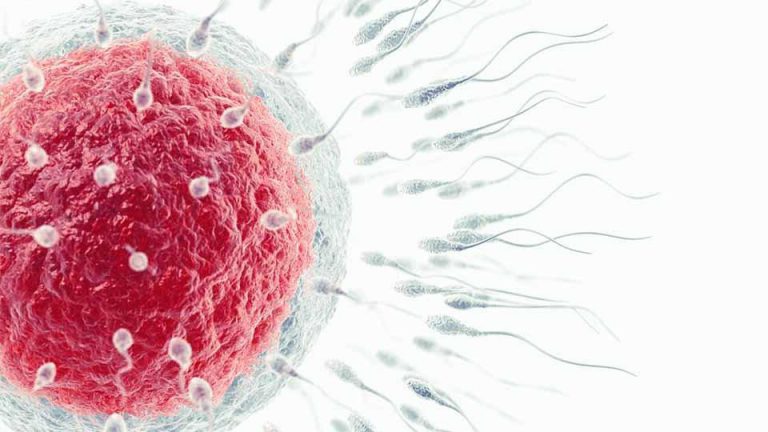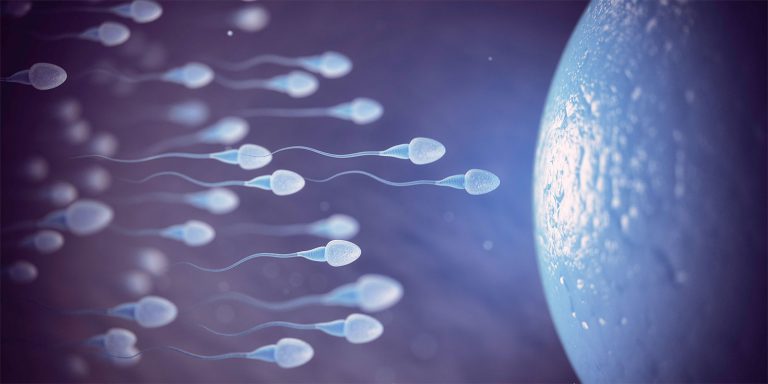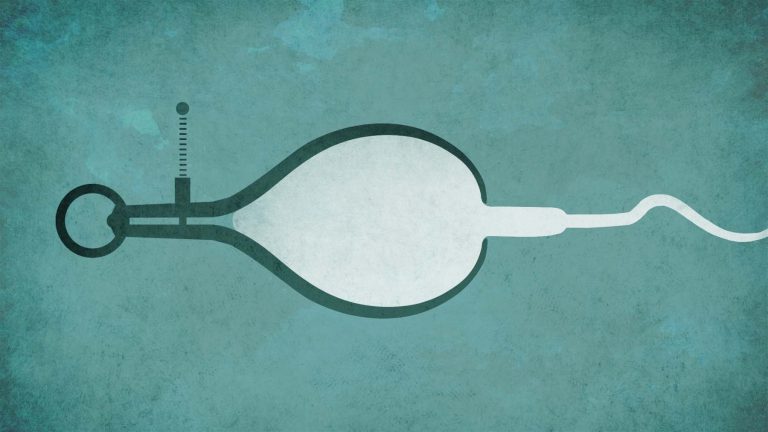How Sperm are Made
Spermatogenesis is the process in which new sperm are created in the testes. This happens on a continuous basis via mitosis and meiosis, where each immature sperm cell creates two cells, and each of those produce four cells, called spermatozoa.
Abnormal spermatogenesis is believed to be the most common cause of male infertility.
The Sperm Production Process
Spermatogenesis takes place from puberty to death. The male reproductive system produces some 1500 sperm per second, which equates to millions per day, though only about half of these sperm end up being viable.
The location of the testes outside of the body, as well as their morphology, are both important factors in maintaining the relatively cool temperature required for adequate sperm development.
Sperm is initially formed via the production of FSH and LH, hormones secreted by the pituitary gland that contribute to testosterone production and sperm development. Diseases that impair the secretion of these hormones can affect spermatogenesis and therefore fertility. This is why one of the methods that is used for fertility testing and treatment is a test of these hormone levels.
Ideal Conditions for Spermatogenesis
The structure and position of the scrotum and testes is key to ensuring spermatogenesis occurs normally. The sperm matures in the epididymis which runs down back middle area of the testes. The thin, corrugated skin of the scrotum, along with a delicate internal thermoregulation process, work together to keep sperm consistently cool as they reproduce.
This area is typically a few degrees lower than the normal body temperature, with the ideal temperature believed to be about 34 degrees C.
The Effect of Temperature on Sperm Development
The overall virility of male semen may be affected in terms of morphology, motility, or overall concentration. Temperature is the primary and most direct factor that is known to affect how sperm are made.
The testes have a specific mechanism for heat exchange which is based on a cooling the blood entering the testes. This is a delicate system that can be influenced easily; even an increase of 2-3 degrees C can get in the way of temperature regulation and affect sperm development.
Factors that can have a detrimental (temporary) effect on temperature-related spermatogenesis interruption may include:
- Prolonged exposure to external heat sources (e.g. daily workplace exposure)
- Prolonged immersion in hot water
- Being sedentary for long periods of time
- Tight pants or underwear
Test Your Sperm Quality. Easy, Mail-in Kit.
ORDER NOWSpermatogenesis and Infertility
Many confounding variables can affect sperm production at any stage of spermatogenesis. Though it’s still a question as to how much each factor affects sperm production, men who are trying to conceive should err on the side of caution.
There is inconclusive evidence about the influence of laptops and cell phones on sperm temperature, and they are worth noting as potential culprits. Direct and/or extensive exposure to pesticides and other environmental toxins is also known to disrupt sperm growth.
Certain prescription drugs, over-the-counter drugs, cancer drugs, steroids, drugs used to manage epilepsy, and antibiotics have been studied as to their negative effects on spermatogenesis. In some of these cases, when participants have stopped taking the drugs, semen quality improved dramatically.
Other factors known to affect how sperm are made and that can be possible factors behind infertility include:
- BMI/Obesity. Studies show that a BMI of higher than 25 means 25% less sperm and lower sperm motility.
- Nutrition. Taking vitamin supplements such as zinc and selenium may help to improve sperm quality.
- Alcohol, smoking and drug use. The extent to which this can affect fertility is still in question, however, studies point to a moderate influence. For instance, a 2015 study of young men showed that regular marijuana smokers had a 28% lower sperm concentration than that of the control group.
- Frequency of ejaculation. Ejaculating every 2-3 days is generally thought of as the optimal rate for sperm strength and health.
- Genital tract infections can cause damage to internal reproductive system parts and negatively impact sperm development.







